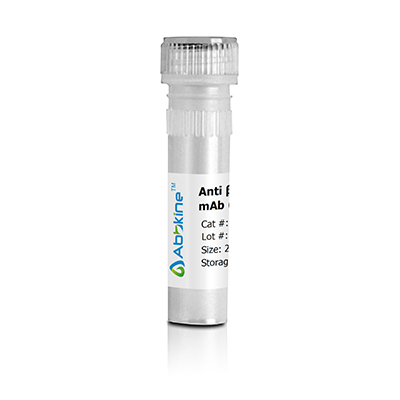IDE encodes a zinc metallopeptidase that degrades intracellular insulin, and thereby terminates insulins activity, as well as participating in intercellular peptide signalling by degrading diverse peptides such as glucagon, amylin, bradykinin, and kallidin. The preferential affinity of insulin degrading enzyme for insulin results in insulin-mediated inhibition of the degradation of other peptides such as beta-amyloid. Deficiencies in this protein's function are associated with Alzheimer's disease and type 2 diabetes mellitus but mutations in IDE have not been shown to be causitive for these diseases. Insulin degrading enzyme localizes primarily to the cytoplasm but in some cell types localizes to the extracellular space, cell membrane, peroxisome, and mitochondrion. Alternative splicing results in multiple transcript variants encoding distinct isoforms. Additional transcript variants have been described but have not been experimentally verified.
The Abbkine IDE Mouse Monoclonal Antibody was affinity-purified from mouse ascites by affinity-chromatography using specific immunogen and detects endogenous IDE proteins. The antibody has been validaed in WB, IHC-P, IF and reacts with Human samples.
Abbkine supplies below price/size: $100/30μl, $220/100μl, $360/200μl of Mouse Anti-IDE Monoclonal Antibody at https://www.abbkine.com/product/ide-monoclonal-antibody-abm40083.
bio-equip.cn




